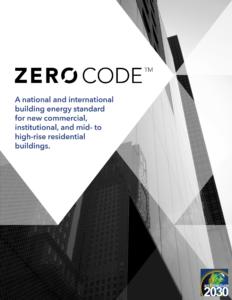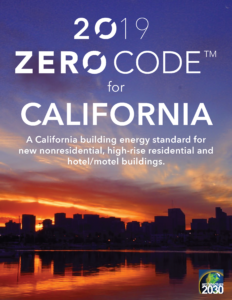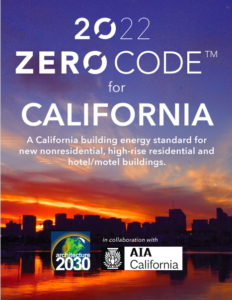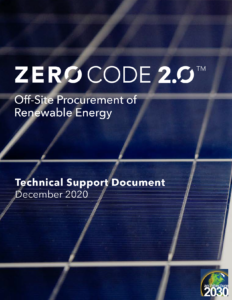The Zero Code
ZERO CODE DIRECTORY
2020
The second version of the Zero Code introduced in 2020. References what was then the latest ASHRAE Standard 90.1-2019 and provides options to specify beyond-code energy efficiency and eliminate the direct use of fossil fuels in buildings.
2018
The first version of the Zero Code introduced in 2018. References what was then the latest ASHRAE Standard 90.1-2016.
2020
The Zero Code Renewable Energy Standard has been adopted into the 2021 International Energy Conservation Code as Appendix CC: Zero Energy Commercial Building Provisions.
2019
A special version of the Zero Code that builds on the energy efficiency requirements of California’s tough energy efficiency standards and introduces an hourly metric called time-dependent source energy that accurately tracks carbon emissions in order to achieve zero-net-carbon.
2020
The 2022 Zero Code for California includes prescriptive and performance paths to compliance based on the upcoming 2022 California Building Energy Standards (BEES) and it’s pending Hourly Source Energy metric. The 2022 ZERO Code for California also prohibits gas equipment in the building, requires a minimum amount of on-site PV, and requires that the building owner commit to buying 100% renewable electricity for 20 years. The 2022 Zero Code for California was developed in collaboration with AIA California and is their official petition for amendments to the California Green Building Standards Code for updates to the 2022 California Green Building Standards Code (CALGreen).
DECEMBER 2020
This technical support document describes several potential options for off-site procurement of renewable energy within the context of codes, and presents a process for evaluating and assigning a weight to each procurement method. The technical support document has been updated to accompany the Zero Code 2.0.
2018
This technical support document provides background and technical information in support of the 2019 Zero Code for California developed by Architecture 2030.







